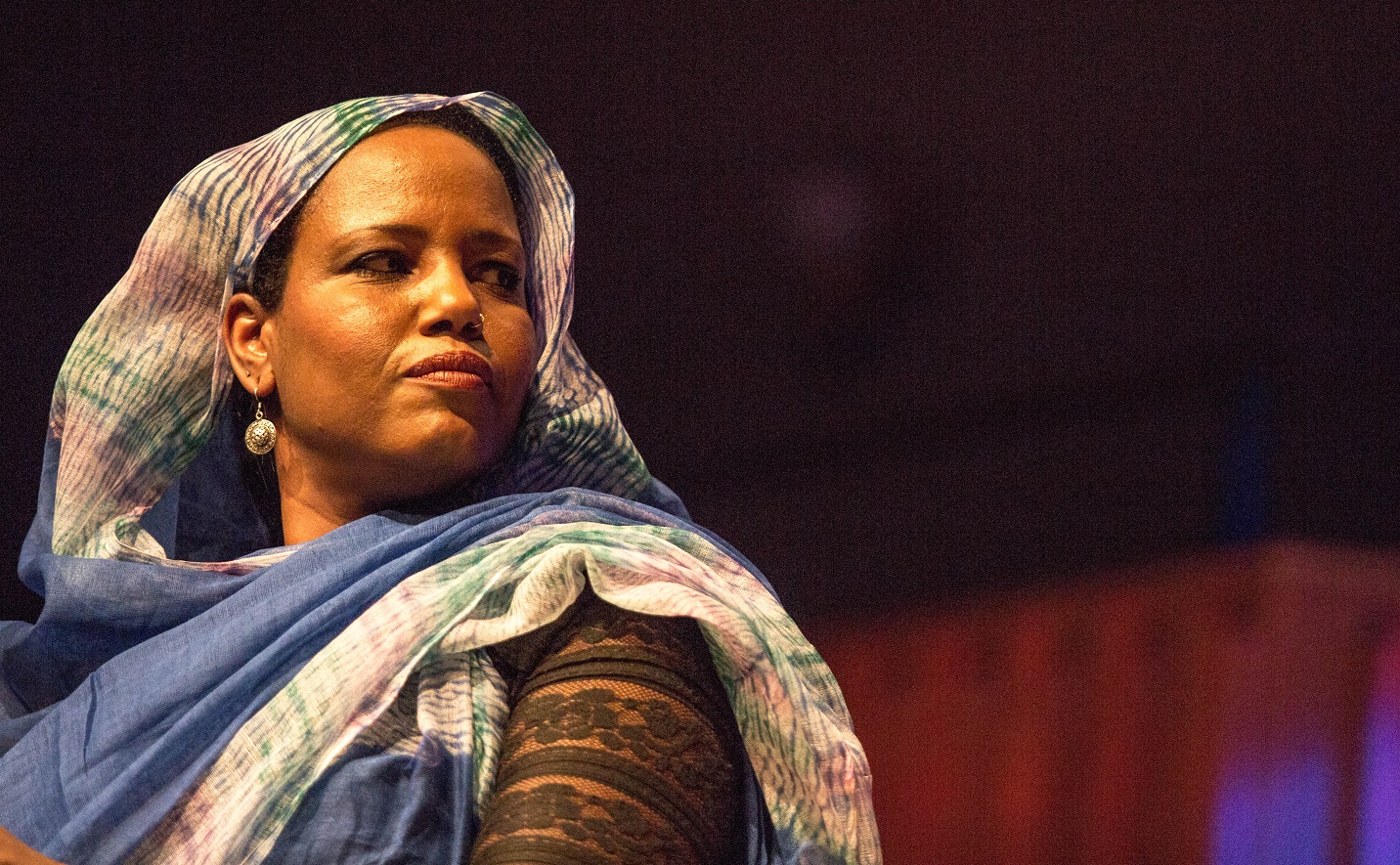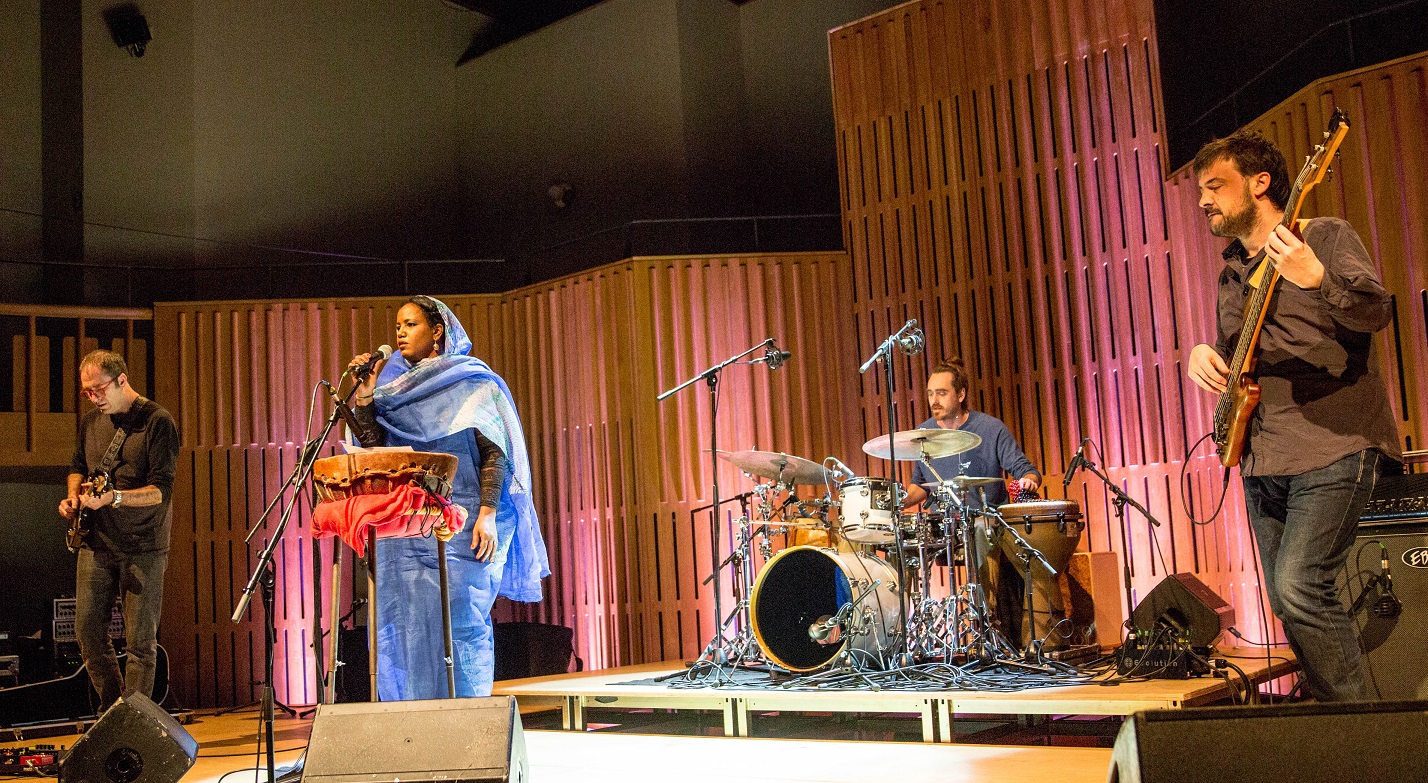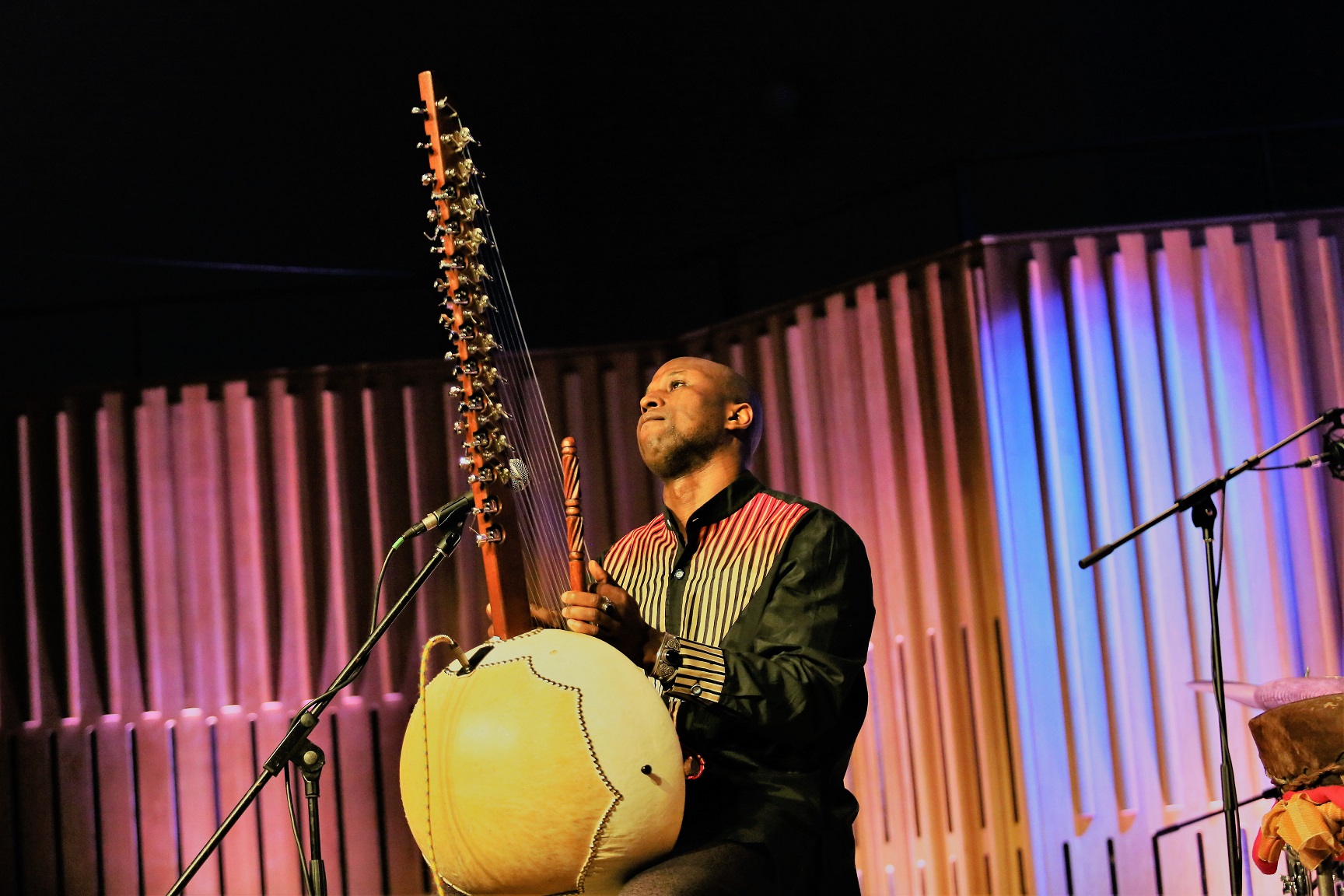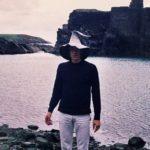This is the Howard Assembly Room’s first live musical show of 2017 and what a start to the year it turns out to be. Whilst the venue has established for itself a magnificent reputation for hosting a most inspired and diverse programme of World, folk, jazz, classical music and cultural events since being reopened to the public following a major refurbishment more than eight years ago, this evening’s show must surely rank right up there amongst its very best.
The star of the evening is undoubtedly Aziza Brahim, the highly acclaimed Saharawi singer and percussionist, who together with her incredible band – Guillem Aguilar on bass, drummer Aleix Tobias and Pep Mendoza on guitar – produces a mesmerising performance that steps outside of its more traditional West African, Cuban and Iberian influences and into another world dimension altogether.
Aziza Brahim’s back story has been told many times before. She was born 40 years ago in el Hamada, a refugee camp in the Algerian province of Tindouf, where her mother had fled following the Moroccan occupation of Western Sahara in 1975. Brahim was to remain in this camp for 11 years before travelling to Cuba on a scholarship. She eventually settled in Spain at the turn of the millennium and is now domiciled in Barcelona.
It is these childhood experiences that inform Aziza Brahim’s music. Singing in her native Hassaniya Arabic, one would suspect that there are not too many in tonight’s sell-out audience who will understand exactly what Brahim is saying but such is the eloquence of her voice and the music with which it is inexorably entwined the meaning of her words is abundantly clear. These are songs that capture the pain, suffering, stoicism, strength and resistance of her fellow country men and women and her incredible voice has become that of her proud people.
One of only three dates on her current UK tour (the other two form part of Glasgow’s celebrated winter music festival, Celtic Connections), tonight’s set concentrates entirely on material from her last two studio albums. Soutak – released in 2014 – contributes half a dozen songs, of which the mournful blues of the title track is the most powerful as it accurately conveys much of the tragedy and loss experienced in her homeland. Last year’s excellent Abbar el Hamada provides the remainder; potent, fluid grooves that unfurl before our very eyes and ears. These are songs of profound integrity. They may well speak of conflict, exclusion and persecution yet still remain imbued with the vibrancy of hope and an undiluted quest for justice.
Earlier in the evening, quite admirable support was provided by the Senegalese singer and kora player Kadialy Kouyate. Featuring music from his latest release Na Kitabo, he transfixed us with his dexterity, hypnotic rhythms and lyrical celebrations of love and cultural identity.
Photo credit: Simon Godley
More photos from this show can be found HERE






